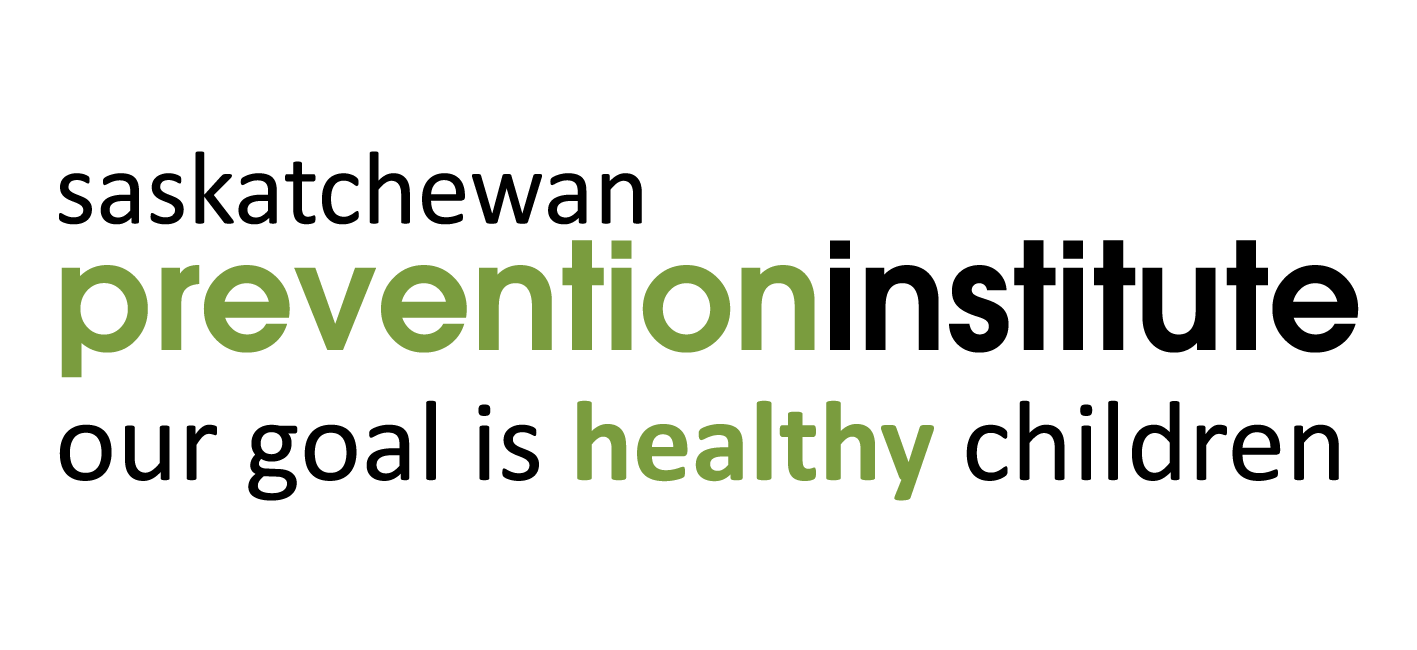
- Sort by Product ID
- Display 15 Products per page
-
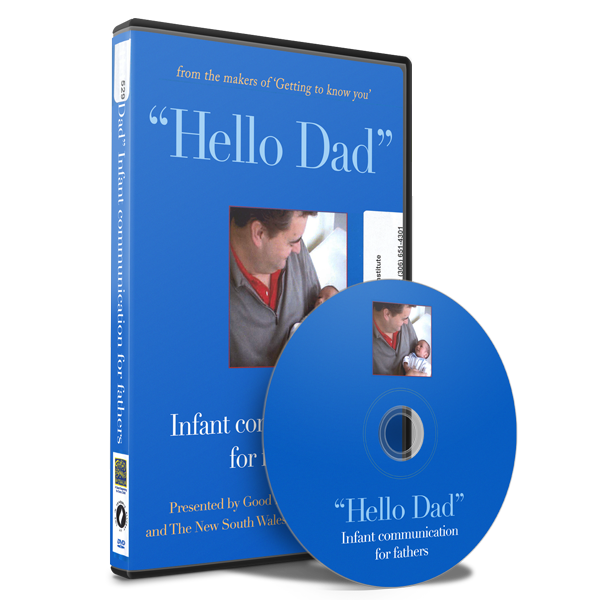
Hello Dad
Video, 2006
Sometimes, despite the amazing emotions of fatherhood, men can feel like little more than bystanders. However, babies know their fathers too, and from the moment of birth, they are eager to interact with them. Dads, as well as moms, are crucial in helping their babies build relationships. Science tells us these relationships are critical for the healthy development of babies’ brains. By following a group of families, this film teaches how to recognize the earliest signs of infant communication. These early interactions enrich your time as a father and give your baby the best possible start in life.
SKU: 5-V-529 -
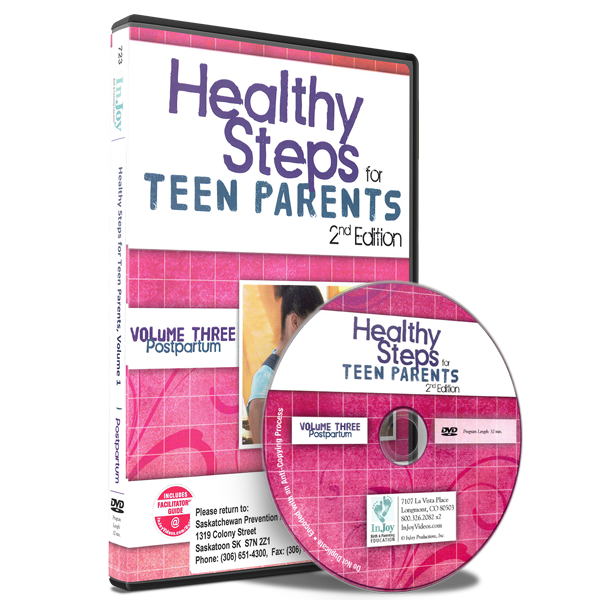
Healthy Steps for Teen Parents, 2nd Edition, Volume 3: Postpartum
Video, 2010
This video presents information about postpartum care, newborns, and an array of teen parenting challenges and joys. New teen parents candidly share personal stories about the realities of healing physically after birth, breastfeeding, and choosing child care.
Content includes:
- Physical Recovery & Postpartum Emotions – healing process, signs of infection, nutrition, rest, exercise, baby blues, signs of postpartum depression
- Baby Care & Behaviours – well-baby visits, feeding, sleeping, crying, bathing, diapering, when to call the doctor, SIDS, second-hand smoke, abusive head trauma (shaken baby syndrome), newborn senses
- Relationships & Parenting – establishing paternity, co-parenting, birth control, positive relationships, living situations, friend and family support, finishing school, child care options
SKU: 7-V-723 -
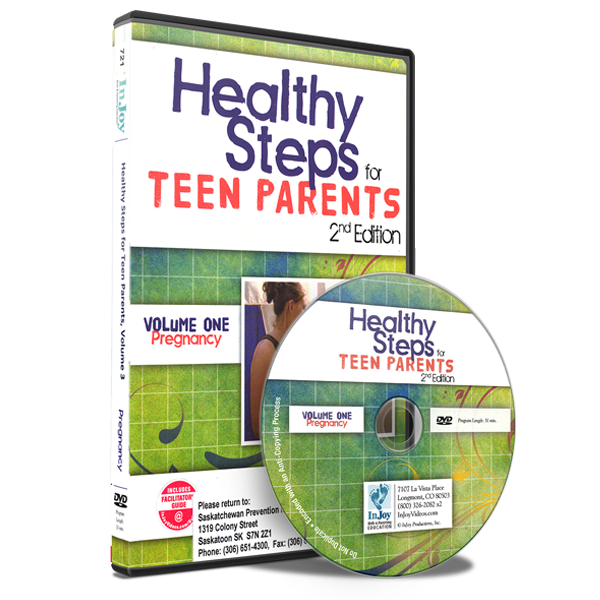
Healthy Steps for Teen Parents, 2nd Edition, Volume 1: Pregnancy
Video, 2010
Hosted by an empathetic and positive young woman, viewers get the straight story as they follow six teens who share their personal pregnancy experiences. Watch how teens cope with their changing life and take the necessary steps to ensure a healthy pregnancy, birth, and baby.
Content includes:
- Prenatal Care & Nutrition – telling someone you’re pregnant, prenatal visits, nutrition, weight gain, warning signs
- Protecting Your Baby – avoiding harmful substances
- Physical & Emotional Changes – exercise, dental health, sleep, premature labour signs, emotional changes, relationship abuse
- Getting Support – friends and family, staying in school, alternative education options
SKU: 7-V-721 -
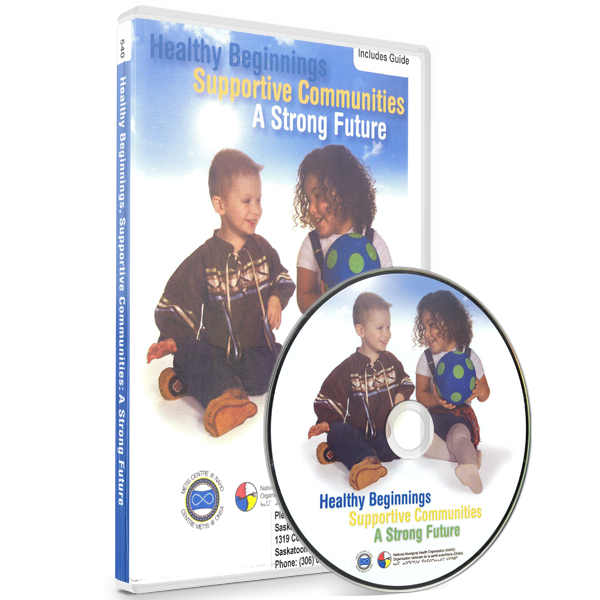
Healthy Beginnings, Supportive Communities, a Strong Future
Video, 2010
In 2009, the Métis Centre of the National Aboriginal Health Organization (NAHO) met with Métis in different parts of Canada to share and collect stories, teachings, and information on maternal-child well-being. This DVD is the result of learnings from Métis midwives, health professionals, Elders, and parents. The objective of this project was to collect and share experiences, traditions, and health information for the benefit of Métis families.
SKU: 5-V-540 -
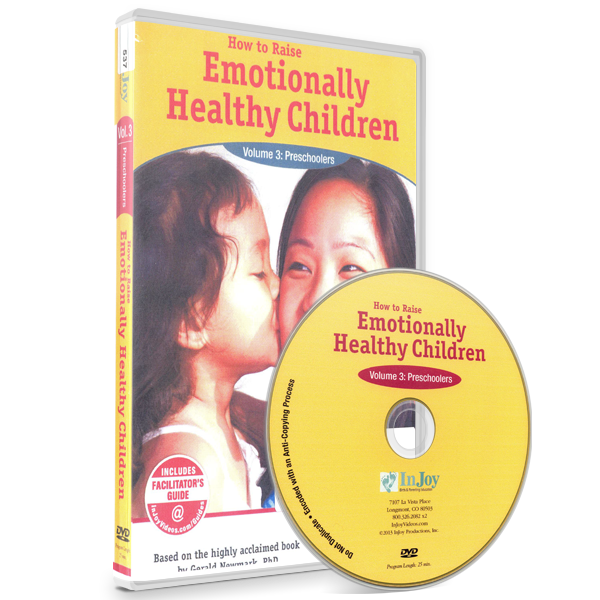
How to Raise Emotionally Healthy Children: Volume 3 – Preschoolers
Video, 2013
Volume 3 of this 3-volume set teaches parents how to support their preschooler’s social and cognitive growth. Featuring common challenges, this program shows parents how to modify their interactions to meet their child’s critical emotional needs: to feel respected, important, accepted, included, and secure. Shows real-life scenarios. Includes tips on improving parents’ emotional health. Segments include: The Five Critical Emotional Needs of Preschoolers, Fighting Siblings, Getting Attention, and Power Struggles.
SKU: 5-V-537 -
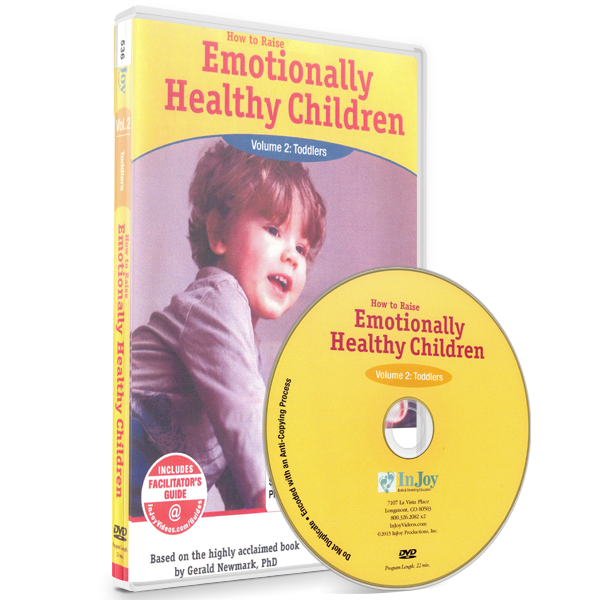
How to Raise Emotionally Healthy Children: Volume 2 – Toddlers
Video, 2013
Volume 2 of this 3-volume set teaches parents how to support their toddler’s desire for independence. Featuring common challenges, this program shows parents how to modify their interactions to meet their child’s critical emotional needs: to feel respected, important, accepted, included, and secure. Shows real-life scenarios. Includes tips on improving parents’ emotional health. Segments include: The Five Critical Emotional Needs of Toddlers, No! I Won’t!, Parenting in Public, and Defiant Behaviour.
SKU: 5-V-536 -
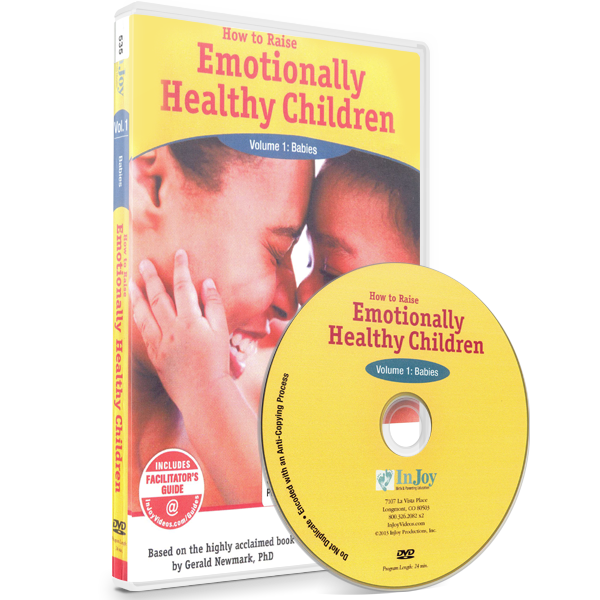
How to Raise Emotionally Healthy Children: Volume 1 – Babies
Video, 2013
Volume 1 of this 3-volume set teaches parents how to nourish their baby’s emotional health right from the start. Featuring common challenges, this program shows parents how to modify their interactions to meet their child’s critical emotional needs: to feel respected, important, accepted, included, and secure. Shows real-life scenarios. Includes tips on improving parents’ emotional health. Segments include: The Five Critical Emotional Needs of Babies, Crying, A New Babysitter, and Exploration.
SKU: 5-V-535 -

Good Discipline, Good Kids (Parent and Child Series)
Video, 1998
This is one of a three-part series entitled “Parent and Child” produced by Sunburst Videos. Adele Faber and Elaine Mazlish, authors of “How To Talk So Kids Will Listen & Listen So Kids Will Talk” discuss parenting issues. This video helps parents understand the basic element of healthy discipline – respectful communication. It helps parents get past the daily power struggle with their children by showing them how to engage cooperation; effectively set rules, expectations, and limits; problem-solve; and use effective alternatives to punishment.
SKU: 5-V-506 -
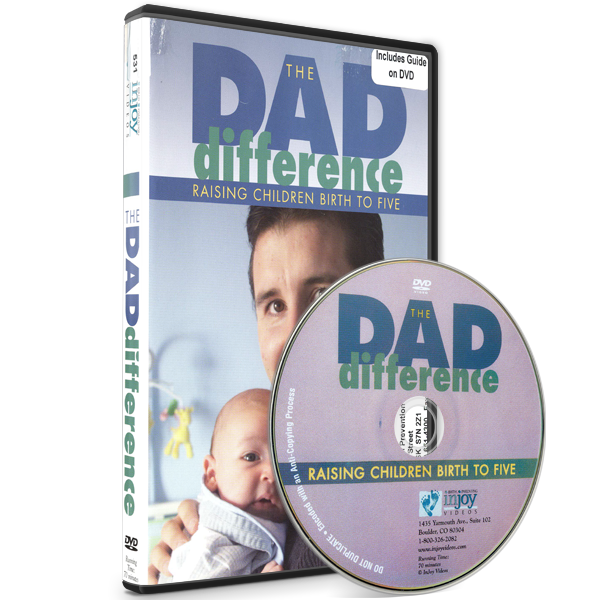
The Dad Difference: Raising Children Birth to Five
Video, 2004
This video is a research-based series that shows dads how to be involved with their babies from pregnancy on. This video features a diverse group of real fathers, candid comments, and practical tips to encourage every dad to become more connected. This video comes with a Facilitator’s Guide.
Download the The Dad Difference Facilitator’s Guide.SKU: 5-V-531 -
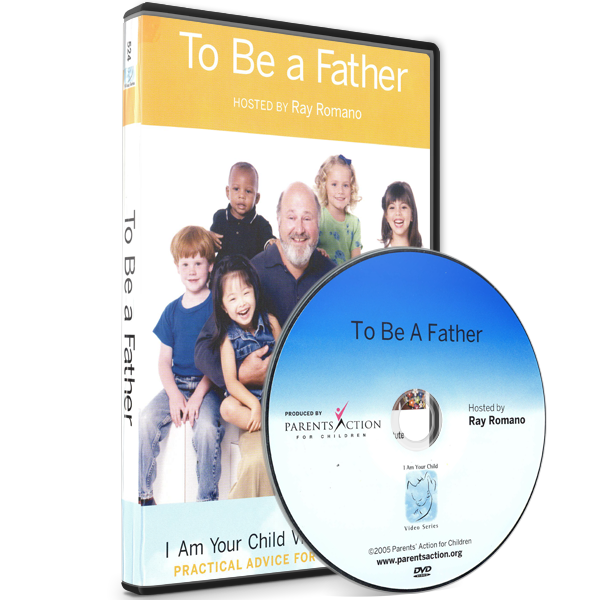
To Be a Father (I Am Your Child Video Series)
Video, 2005
New research has shown that fathers can have an enormous impact on children – from how well they succeed in school, to how they get along with their friends.
This generation of dads is responding to the challenge, by taking a more active role in everything from changing diapers to helping with homework … and it’s paying off, as you’ll hear from men who talk about the rewards of being close to their kids.
This video provides information on:
- How fathering begins even before the baby is born
- How dads can connect with their children right from the start
- What fathers can do to foster a close relationship with their children – even when they live miles apart
- How fathers can overcome the challenges of parenting under special circumstances, like separation and divorce
SKU: 5-V-524 -
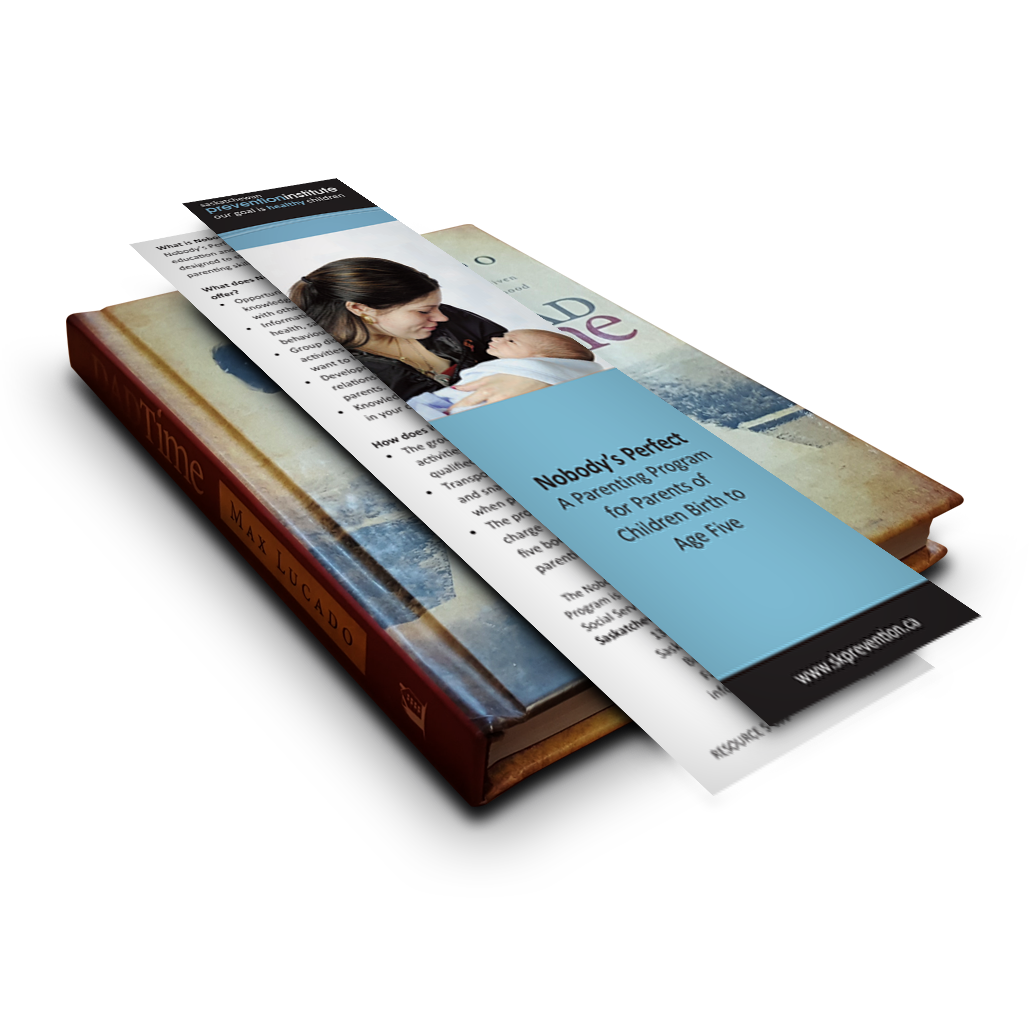
Nobody’s Perfect Bookmark
Bookmark, 2010
This bookmark provides information about the Nobody’s Perfect Parenting Program. Ideal for program facilitators as a take-home keepsake for participants.
SKU: 5-001 -
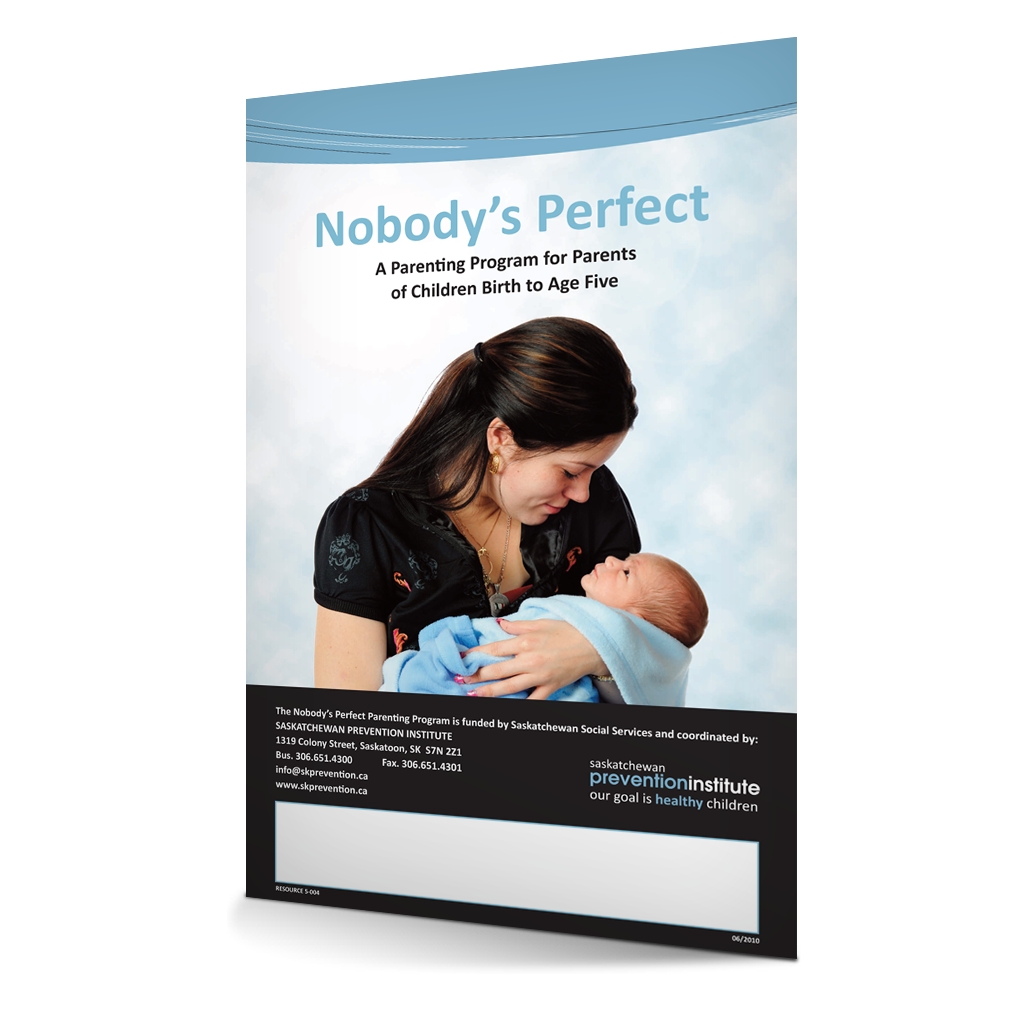
Nobody’s Perfect
Poster, 2010
This poster provides information about the Nobody’s Perfect Parenting Program. Ideal for program facilitators to use as a recruitment tool for potential participants.
SKU: 5-004 -

Nobody’s Perfect Information Card
Information Card, 2010
This information card provides information about the Nobody’s Perfect Parenting Program. Ideal for program facilitators as a recruitment tool for potential participants.
SKU: 5-002 -

Des liens pour la vie: Trousse de ressources pour l’attachement
Guide and Manual, 2007
Cette trousse contient des documents éducatifs, dont un DVD et un guide, ainsi que des outils à l’intention de ceux et de celles qui travaillent auprès des familles. Ces documents, mis au point à partir de données fondées sur des résultats en matière d’attachement, donnent une définition de l’attachement, traitent de son importance dans le développement de l’enfant, des facteurs qui l’influencent, et de ce que nous pouvons faire pour favoriser un attachement sécurisant.
Les outils pour développer l’attachement s’appellent “Activités pour développer l’attachement”. Il s’agit d’activités simples et agréables que les parents, ou les personnes responsables de l’enfant, peuvent faire avec l’enfant pour favoriser le développement d’un attachement sécurisant. Il y a sept activités à faire avec un enfant, quel que soit son âge. Il y a aussi plusieurs activités à faire avant la naissance du bébé et une liste de mythes et réalités pour faciliter la discussion avec les parents. La section sur les “activités pour développer l’attachement” comprend : les “directives pour l’animation de groupes de discussion”, lesquelles comprennent des suggestions sur la façon de présenter une activité à un groupe de parents en faisant appel à leurs qualités personnelles et à leurs points forts, et en utilisant des techniques d’enseignement pour adultes. Chaque activité comprend également un prospectus qui donne une brève description de l’activité aux parents. Les activités pour développer l’attachement sont indépendantes les unes des autres; vous pouvez en utiliser une ou plusieurs, selon ce qui est le plus approprié pour vous.
SKU: 6-001 -
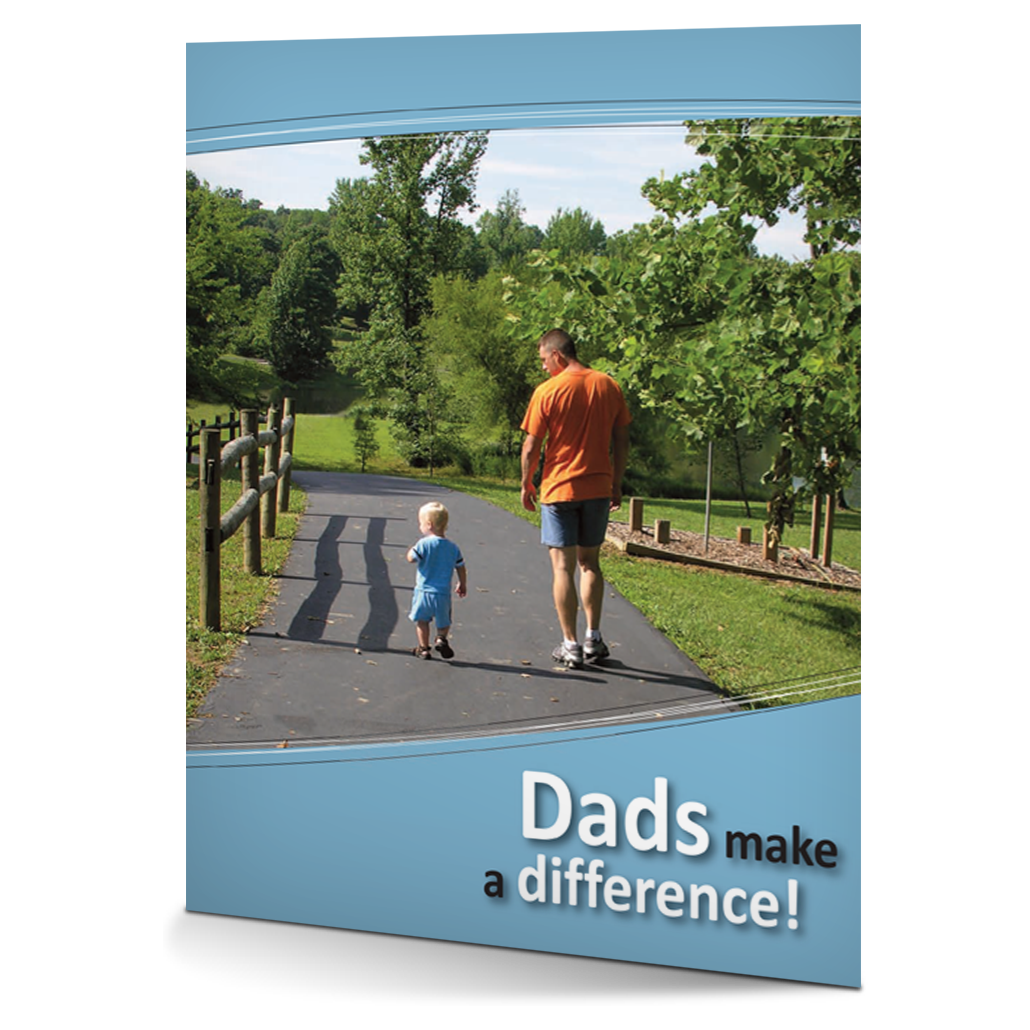
Dads Make a Difference
Booklet, 2010
The dad’s role in a child’s life is very important. The booklet contains information on how to be an active parent, and provide structure, guidance, and opportunities to learn. This booklet challenges fathers to do everything they can to be the best dads to their children. Funding for the development of this publication was provided by Saskatchewan Community Resources and Employment.
SKU: 5-015
